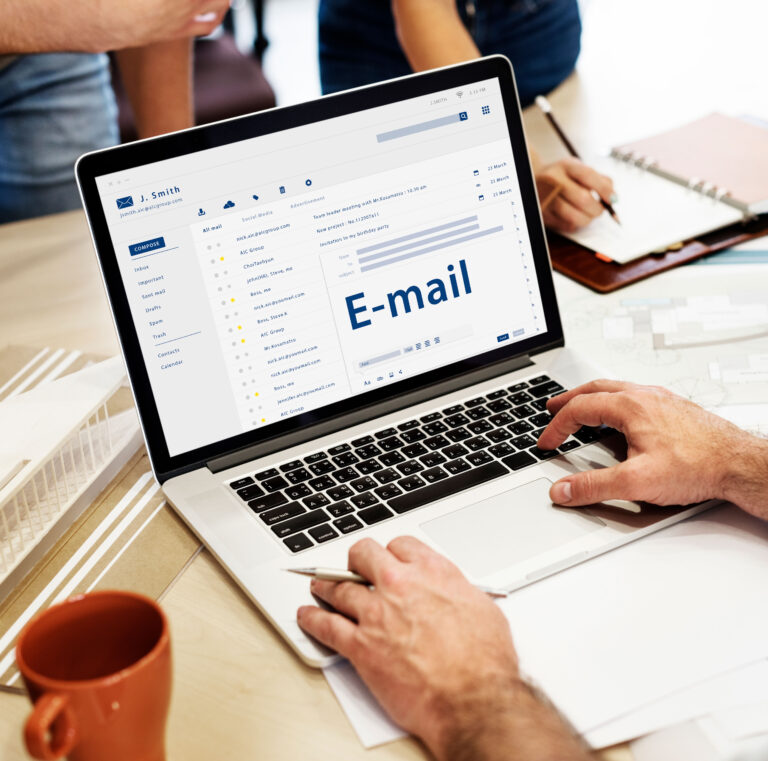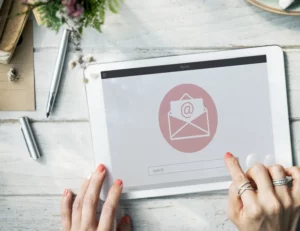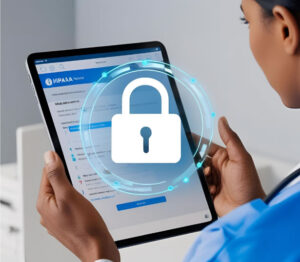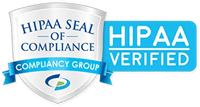Email has become the backbone of business and personal communication, making its security more critical than ever. As cyber threats become increasingly sophisticated, safeguarding sensitive data transmitted via email is a top priority. Choosing the exemplary email encryption service gives you the protection and peace of mind you need, whether you’re an individual or an organization.
The Importance of Email Encryption in 2025
As we move further into 2025, the cybersecurity landscape continues to grow more complex and threatening. Cybercriminals are employing increasingly advanced techniques to breach systems, often targeting email communications because they contain sensitive data such as personal details, financial information, and corporate secrets. High-profile data breaches have become disturbingly common, with recent reports indicating that over 50% of organizations worldwide experienced a cybersecurity incident last year, many of which involved compromised email accounts. These breaches not only result in financial loss but also erode trust and damage reputations.
The volume of privacy leaks and data thefts underscores why using a “secure email encryption service” has become essential for any entity that values confidentiality. As threats evolve, so must defense mechanisms—encryption provides a vital layer of protection by making intercepted messages unreadable to outsiders. Legal frameworks, such as GDPR and HIPAA, as well as emerging privacy laws, now mandate that organizations protect sensitive data, emphasizing encryption as a necessary compliance tool. In a digital landscape fraught with cyber risks, encryption isn’t just an option; it’s a critical safeguard that helps prevent data breaches, preserves privacy, and ensures business continuity.
Moreover, with the advent of quantum computing on the horizon, current encryption standards are also being challenged. This accelerated need for more robust, future-proof encryption technologies makes deploying secure email services not just a precaution but a strategic imperative for organizations aiming to stay ahead of evolving cyber threats. Ultimately, email encryption in 2025 is no longer optional but a foundational element of modern cybersecurity and privacy management.
Understanding Email Encryption Services
An “email encryption service” is a security platform or tool that protects the confidentiality and authenticity of email communications through cryptographic techniques. These services encrypt the content of your emails—transforming readable text into an unreadable format—so only intended recipients with the proper decryption keys can access the original message. The core goal is to prevent unauthorized entities, such as hackers or eavesdroppers, from viewing sensitive information during transmission or storage.
Typically, email encryption services operate using a combination of encryption technologies. The most common are end-to-end encryption (E2EE) and Transport Layer Security (TLS).
- End-to-end encryption means that messages are encrypted on the sender’s device and decrypted only on the recipient’s device, ensuring no intermediaries, including the service provider, can access the unencrypted content. It provides the highest level of privacy, essential for sensitive or confidential exchanges.
- TLS encrypts the communication channel between mail servers during transit, preventing third parties from snooping as the email travels through the internet. While TLS protects data in transit, it does not automatically secure the stored or end-user viewable content unless combined with end-to-end techniques.
Email encryption services leverage public key infrastructure (PKI), digital certificates, and secure protocols to achieve these protections. They also often include features like digital signatures to verify sender identity and blockchain-based logging for audit trails. Together, these technologies create a comprehensive shield, ensuring that email content and attachments remain secure and trustworthy from sender to recipient, in transit, and at rest.
Key Features to Look for in an Email Encryption Service
When selecting the best email encryption service in 2025, it’s essential to evaluate features that ensure robust security while providing a seamless user experience. The most fundamental feature is strong encryption standards, such as AES-256 for data encryption and RSA or ECC algorithms for key exchange. These standards are globally recognized for their resilience against cryptanalytic attacks and are crucial for safeguarding sensitive information. Additionally, support for industry best practices, such as Perfect Forward Secrecy (PFS), helps ensure that even if encryption keys are compromised in the future, past communications remain secure.
Ease of use is another critical aspect. The best email encryption services should integrate seamlessly into your existing email client—whether Outlook, Gmail, or others—via intuitive plugins, add-ins, or built-in features. Automatic encryption options, straightforward key management, and minimal manual intervention reduce the likelihood of user error, which is vital for maintaining security. Clear instructions for encrypting individual messages or setting default encryption policies can help both technical and non-technical users communicate securely without added complexity.
Beyond core security features, additional benefits can significantly enhance the value of an email encryption service. Compliance support is crucial for industries such as healthcare, finance, and legal services, which must adhere to regulations like HIPAA, GDPR, and PCI DSS. Look for services that offer audit logs, data residency options, and legal compliance certifications. Scalability ensures that the solution can grow with your organization—supporting increasing user counts, storage needs, or expanding to new regions without sacrificing performance. Finally, reliable customer service, including technical support and user training, helps resolve issues quickly, ensuring your secure communication remains uninterrupted. Collectively, these features define a comprehensive, practical, and user-friendly email encryption service.
Top Email Encryption Services of 2025: A Comparative Overview
As encryption technology and cybersecurity demands continue to advance in 2025, several providers stand out for their feature sets, security standards, and usability. Here’s a curated overview of the leading email encryption services, highlighting their key strengths, weaknesses, and unique selling points to help you make an informed choice.
- Proton Mail
Strengths:
- Utilizes end-to-end encryption with zero-access architecture, ensuring maximum privacy.
- Open-source cryptography, which promotes transparency.
- User-friendly interface with integrated encryption features, including default encryption for premium users.
- No personal data required to sign up, enhancing privacy.
Weaknesses:
- Limited storage in the free plan (500 MB), with paid plans needed for more space.
- Limited compatibility with corporate or third-party integrations.
- PGP support in paid tiers; not available in the free version.
Unique Selling Points:
- Emphasis on privacy and open-source transparency.
- No personal info needed for registration, appealing to privacy-conscious users.
- Tutanota
Strengths:
- Offers free unlimited storage with built-in end-to-end encryption.
- Open-source and highly transparent security protocols.
- Simplified user experience that’s accessible for non-technical users.
- Supports encrypted calendar and contacts.
Weaknesses:
- Doesn’t support PGP, limiting compatibility with some external systems.
- No support for custom domains in free plans.
- Slightly limited advanced enterprise features.
Unique Selling Points:
- Worldwide unlimited storage in the free tier, ideal for personal and small business use.
- Focus on simplicity and transparency, with a built-in encrypted calendar.
- Mailfence
Strengths:
- Supports OpenPGP for end-to-end encryption and digital signatures.
- Offers comprehensive security tools, including secure key management.
- Allows use of custom domains even in paid plans, suitable for organizations.
- Good compliance features and detailed activity logs.
Weaknesses:
- The interface can be less modern and intuitive compared to competitors.
- Storage limits (500 MB in the free plan) may not suffice for heavy users.
- Slightly pricier for advanced features.
Unique Selling Points:
- Focused on enterprise-grade security and compliance, suitable for professional use.
- Strong emphasis on open standards and user control over encryption keys.
- Zoho Mail (with Encryption Features)
Strengths:
- Integrates seamlessly with Zoho’s productivity suite.
- Supports TLS encryption and basic S/MIME features.
- Affordable plans with customization options for businesses.
- User-friendly interface.
Weaknesses:
- Lacks native end-to-end encryption in free plans.
- Encryption features are more limited compared to dedicated services like ProtonMail or Tutanota.
- Notifications and security depend on subscription level.
Unique Selling Points:
- Excellent for businesses already using Zoho applications.
- Cost-effective, with options for scaling up security features.
Comparison Summary
| Feature / Service | Proton Mail | Tutanota | Mailfence | Zoho Mail |
| Encryption Type | End-to-end, Zero-access | End-to-end | OpenPGP + Signatures | TLS, S/MIME (limited) |
| Ease of Use | Very user-friendly | Very user-friendly | Moderate | Very user-friendly |
| Storage (Free Tier) | 500 MB | Unlimited | 500 MB | Varies (up to 5 GB) |
| Advanced Security Features | Yes (Plus plans) | Yes | Yes | Basic (with plans) |
| Supporting External Recipients | Limited (Paid PGP) | Limited | Good (OpenPGP) | Basic (TLS) |
| Ideal For | Privacy enthusiasts | Individual users, small businesses | Enterprises needing open standards | Small-to-medium businesses |
Choosing the exemplary service depends on your specific needs: If your priority is maximum privacy and transparency, Proton Mail and Tutanota are excellent options. For organizations that require more control over encryption keys and compliance, Mailfence offers robust, enterprise-grade features. Meanwhile, Zoho Mail provides a suitable balance for businesses integrated into the Zoho ecosystem that have basic encryption needs.
These services exemplify the best in 2025’s email privacy landscape. By evaluating their strengths, weaknesses, and unique points, you can select the ideal encryption service tailored to your security requirements.
Free vs. Paid Email Encryption Services
When choosing between free and paid email encryption services, it’s vital to understand the differences in features, limitations, and security levels to make an informed decision suited to your needs.
Features: Free email encryption services typically offer basic encryption capabilities, including one-click message protection and limited storage. They are designed primarily for personal use or small-scale communication, providing essential security with user-friendly interfaces. Paid services, however, typically include advanced features like integration with enterprise systems, custom domain support, detailed audit logs, multi-user management, and enhanced encryption standards, making them suitable for organizations with higher security requirements.
Limitations: Free services often come with constraints such as limited storage capacity, restricted support for external recipients, or fewer security features. They may also lack the necessary compliance tools for regulated industries. Conversely, paid services typically offer unlimited or enhanced storage, priority customer support, compliance certifications (e.g., HIPAA, GDPR), and scalability options, enabling organizations to maintain robust security at scale.
Overall Security: While many free solutions do implement strong encryption protocols, premium services typically offer more comprehensive security safeguards—including end-to-end encryption, advanced key management, and threat detection features—that are crucial for sensitive or high-volume communications. Organizations should assess whether free options align with their security posture or if investing in paid solutions is necessary to ensure compliance and protect critical data.
Advice for Choice: Individuals with modest security needs or personal use typically find free services sufficient. However, businesses, healthcare providers, financial institutions, or government agencies should opt for paid services that offer compliance support, enterprise-grade controls, and dedicated support. Ultimately, the decision hinges on your data sensitivity, regulatory obligations, and scalability needs.
Implementing Your Chosen Email Encryption Service
Starting with an email encryption service involves several key steps to ensure smooth integration and user adoption across your organization:
- Setup and Configuration: Begin by enrolling in your chosen service and completing all registration steps. Install necessary plugins or software—such as Outlook add-ins, mobile apps, or web configurations—and verify your encryption credentials, like digital certificates or API keys. Configure security settings according to your organization’s policies, including default encryption policies, user roles, and access controls.
- Training and User Engagement: Conduct training sessions to familiarize users with the new encryption processes, highlighting how to send encrypted messages, decrypt received emails, and handle attachments securely. Providing simple, step-by-step guides or tutorials can increase confidence and reduce user errors. Encourage feedback and address concerns promptly to foster a culture of security awareness.
- Pilot and Rollout: Start with a pilot group to test the system’s functionality and gather insights. Use feedback to optimize configurations and address issues before deploying them organization-wide. Once confident, roll out the service gradually, providing ongoing support and refresher training as needed.
- Monitoring and Support: Post-implementation, monitor usage for compliance and security breaches. Keep your software updated, periodically review policies, and collect user feedback for continuous improvement. Assign dedicated security or IT personnel to manage support requests and ensure consistent practices.
Tips for Adoption:
- Promote the security benefits to all employees.
- Simplify encryption processes to avoid resistance.
- Ensure executive sponsorship to emphasize the importance.
- Regularly review and update encryption policies as threats evolve.
Compliance and Legal Considerations
Choosing an “email encryption service” aligned with legal and regulatory requirements is essential for organizations handling sensitive or regulated data. Laws such as GDPR (Europe), HIPAA (healthcare), and PCI DSS (payment data) impose strict rules regarding data privacy, storage, and breach notifications. Non-compliance can result in substantial fines, legal liabilities, and reputational damage.
Why Compliance Matters: An appropriate secure email encryption solution not only protects privacy but also demonstrates due diligence in safeguarding data. It provides features such as detailed audit logs, access controls, data residency options, and encryption standards compliant with industry regulations. These tools help organizations maintain transparency, accountability, and readiness for audits or investigations.
How Secure Email Encryption Addresses Legal Needs:
- Data Confidentiality: Ensures sensitive information remains accessible only to authorized parties, fulfilling privacy mandates.
- Audit Trails: Maintains detailed logs of access and transmission activities, crucial for demonstrating compliance.
- Strong Encryption Standards: Uses cryptographic protocols recognized as compliant with industry regulations.
- Consent and Notification: Supports mechanisms for informing users and recipients about encrypted data handling, complying with user rights provisions under laws like GDPR.
When selecting an encryption service, verify its compliance certifications, legal data residency options, and ability to generate audit reports. Regular reviews and aligning internal policies with evolving legal standards will help ensure ongoing compliance and mitigate legal risks.
Overcoming Challenges with Email Encryption Services
Implementing email encryption services, whether in organizations or for individual use, often presents several hurdles that can impede effective deployment and adoption by users. Recognizing these common challenges and adopting strategic solutions is key to maintaining robust email security.
- Technical Complexity and Compatibility Issues: One of the primary challenges is the technical complexity involved in configuring encryption protocols such as S/MIME or PGP, which require digital certificates, key management, and sometimes integration with existing infrastructure. Compatibility issues also arise when recipients use different email clients or lack encryption support, leading to failed encrypted exchanges. To address this, organizations should select user-friendly, standards-based encryption solutions that integrate seamlessly with existing email platforms. Providing clear documentation, automated key management, and support tools can make the onboarding process smoother and more efficient.
- User Resistance and Lack of Awareness: Many users find encryption processes cumbersome or are unaware of their importance, leading to resistance or inconsistent usage. When encryption disrupts workflow or complicates communication, users may turn off features or avoid encrypted messages altogether. To combat this, organizations should foster a security-aware culture through training sessions that emphasize the benefits of encryption for both privacy and compliance. Simplifying encryption workflows—such as implementing one-click encryption or automatic policies—can also promote consistent usage.
- Management of Keys and Certificates: Proper key and certificate management are critical for reliable encryption, but managing these securely can be challenging, especially at scale. Mismanagement can lead to lost keys, expired certificates, or unauthorized access. Implementing centralized key management solutions, automated renewal processes, and clear policies helps streamline this aspect. Regular audits and user support also ensure that keys are handled correctly.
By proactively addressing these challenges through user education, streamlined management, and compatible technology choices, organizations can significantly enhance the effectiveness and acceptance of their email encryption initiatives, thereby ensuring improved overall security.
The Future of Email Encryption
The landscape of email encryption is poised for transformative innovations in the coming years, driven by advances in technology, changing threat environments, and increasing regulatory demands. One major trend is the integration of artificial intelligence (AI) and machine learning into encryption and threat detection systems. AI can analyze email traffic patterns to identify suspicious activities, automatically flag potential breaches, and dynamically adapt encryption protocols to respond to emerging threats, significantly enhancing security intelligence.
Moreover, the development of quantum-resistant encryption algorithms is likely to become standard, safeguarding communications against the looming threat posed by quantum computing. These advanced cryptographic protocols will ensure that emails remain confidential, even as computational power continues to grow exponentially, thereby securing sensitive information for the long term.
Another promising innovation is context-aware encryption, where AI evaluates the sensitivity of the email content, sender, recipient, or context to determine the appropriate level of encryption. It automatically applies the appropriate encryption level or additional security measures. This adaptive approach reduces manual intervention, enhances user experience, and ensures data protection aligns precisely with risk levels.
Finally, blockchain technology’s role could expand, providing decentralized key management and audit trails, preventing tampering, and facilitating compliance. These technological advancements will not only reinforce current encryption standards but also usher in a new era of intelligent, dynamic, and future-proof email security—making privacy more reliable, accessible, and efficient than ever before.
Final Thoughts
Selecting the best email encryption service in 2025 isn’t just about compliance—it’s about proactive defense against relentless cyber risks and maintaining trust in your digital interactions. With so many options available, it’s essential to weigh encryption strength, integration, usability, and compliance support to find a solution that truly meets your needs. Email encryption is no longer optional; it’s essential for securing your sensitive communications and safeguarding your reputation.
Ready to take your email security to the next level? MailHippo is the leading email encryption service that covers everything you need—robust encryption, effortless integration, user-friendly setup, and full compliance with regulations like GDPR and HIPAA. Protect your communication and give your team the tools they deserve. Get started with MailHippo today—contact us for a demo and see why we’re the most trusted name in email encryption.






